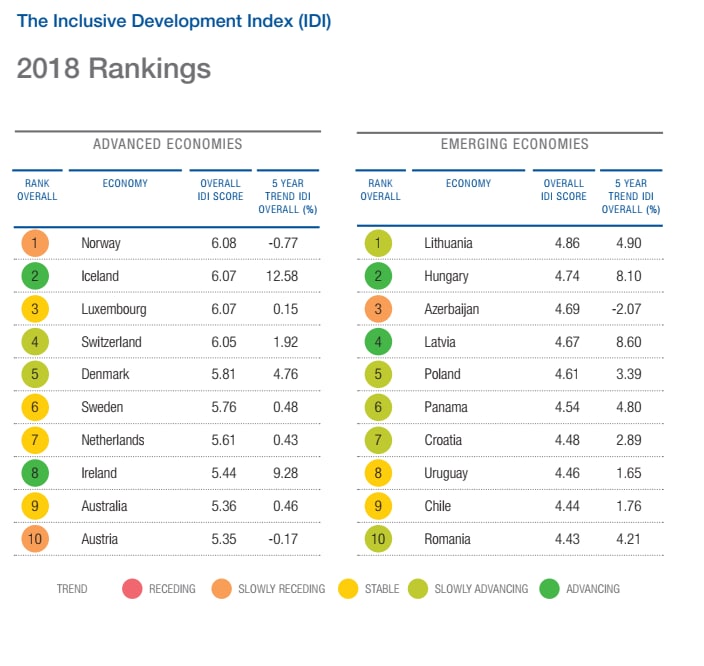Uruguay among top 10 Emerging most inclusive economies
The Index measures three performance indicators – known as pillars – of a nation’s economic development. They are:
- Growth and Development
- Inclusion
- Intergenerational equity
Growth and Development
This measure does look at GDP, but also at life expectancy.
Inclusion: Measures for this metric include household income and poverty rates.
Intergenerational equity: This analyses factors such as age demographics (the number of workers versus the very young and very old) as well as how much debt the country owes per capita.
Of the 103 economies covered by the study, Norway comes out on top. It scores 2nd on intergenerational equity, and third on growth and development as well as inclusion.
In fact, small European countries dominate the top ten.
Iceland is a “stand out” economy, and second on the list. The country has done more than most to make its growth processes more inclusive and sustainable, says the report. That said, its inclusion pillar has deteriorated over the last five years. It shares the same score as Luxembourg, in third place.
Denmark and Sweden join the other northern European countries in the top ten, in 5th and 6th place respectively.
Australia, in 9th place, is the only non-European economy in the top 10.
Emerging Economies


Dejar un comentario
¿Quieres unirte a la conversación?Siéntete libre de contribuir